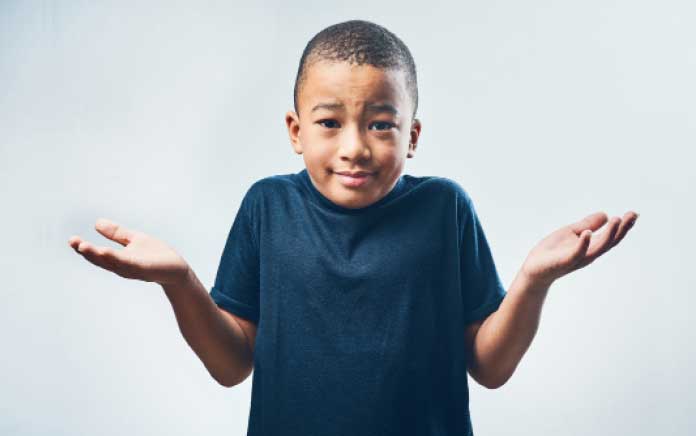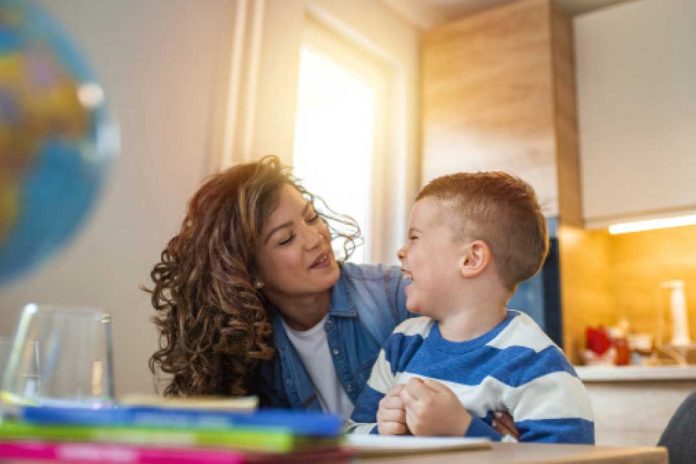Ouiam Charkani El Hassani gives us some invaluable advice on how to keep our little ones from using foul language!
Maybe, at first, you laugh out loud because it caught you off guard. Or maybe, you’re shocked because you don’t use that kind of language in your home and want it to stop immediately! After the initial shock, you have one question in mind: “How do I deal with it?”
Why do kids say inappropriate things even when we do not use such language at home, and we carefully choose what they are exposed to on TV and social media platforms?
By age four, most children are not only in preschool but also have playdates where they interact with groups of children and adults. By this age kids soak up all kind of information like sponges, and therefore they are learning everything that might cross their path, whether it’s good or bad.
 All of us, including young children, need to feel that we are capable of affecting others. This is particularly true of preschoolers, who are becoming increasingly aware of themselves as unique human beings, separate from their families. They are discovering new vocabulary daily, and they find it exciting to play with new words, especially when something new happens after they say a new word, this makes them feel powerful.
All of us, including young children, need to feel that we are capable of affecting others. This is particularly true of preschoolers, who are becoming increasingly aware of themselves as unique human beings, separate from their families. They are discovering new vocabulary daily, and they find it exciting to play with new words, especially when something new happens after they say a new word, this makes them feel powerful.
When adults hear a young child use inappropriate language, they usually either laugh or are shocked and do not respond. This can be confusing to the child and may make it harder to address the issue. When a child uses inappropriate language, address it directly and immediately. Stay calm, keep a straight face, and say to her, “That’s a word we don’t use here.” If the child asks why, explain in a simple manner why not. For example: “That can hurt someone’s feelings” or “Most people do not like those words.”
Consistency is the key! The aim is to explain how some words are not respectful and not to be used in our households, a simple rule like the other rules each parent has in their house, such as: “No speaking with your mouth full,” “No hitting,” “No snatching”, etc. Having a different reaction every time your child blurts out a bad word can have a negative effect; rather than fix the problem, it will be a fun game for the child to see what mommy’s reaction will be this time.
The simpler and more direct we are when dealing with this issue, the better outcomes we will have. Half of the problem is that parents tend to make it into a big deal serving the child’s exact purpose: Getting attention.
Ignoring the child and his use of bad words has the same negative effects as having a different reaction every time. Ignoring your child simply deprives them of the attention they are craving. Instead, fulfill their need and give them the attention they crave while correcting the behaviour. Try to get to your child’s level, look them in the eyes, speak firmly but nicely and tell them that this kind of language isn’t acceptable and that you can happily help them choose better words if they would like to.
If a child continues to use inappropriate language, be consistent in your response and try to figure out why a child may be using it, it will make it easier to work with the child to deal with the problem. Watch closely to find out when the child uses inappropriate language and what’s happening at the time. Also, think about what you and others say to the children and around the children. Children may be hearing conversations that you think are out of listening range. Remember—children will repeat what you say and do. Be sure to use the same words that you want the children to use. Work with the rest of the family to find a common way to respond to the child when he uses inappropriate language and be consistent. Be consistent!
Don’t forget to praise your child’s efforts when faced with a situation where they would have possibly used the bad language, yet they didn’t; to them this could be the best reward ever.





































